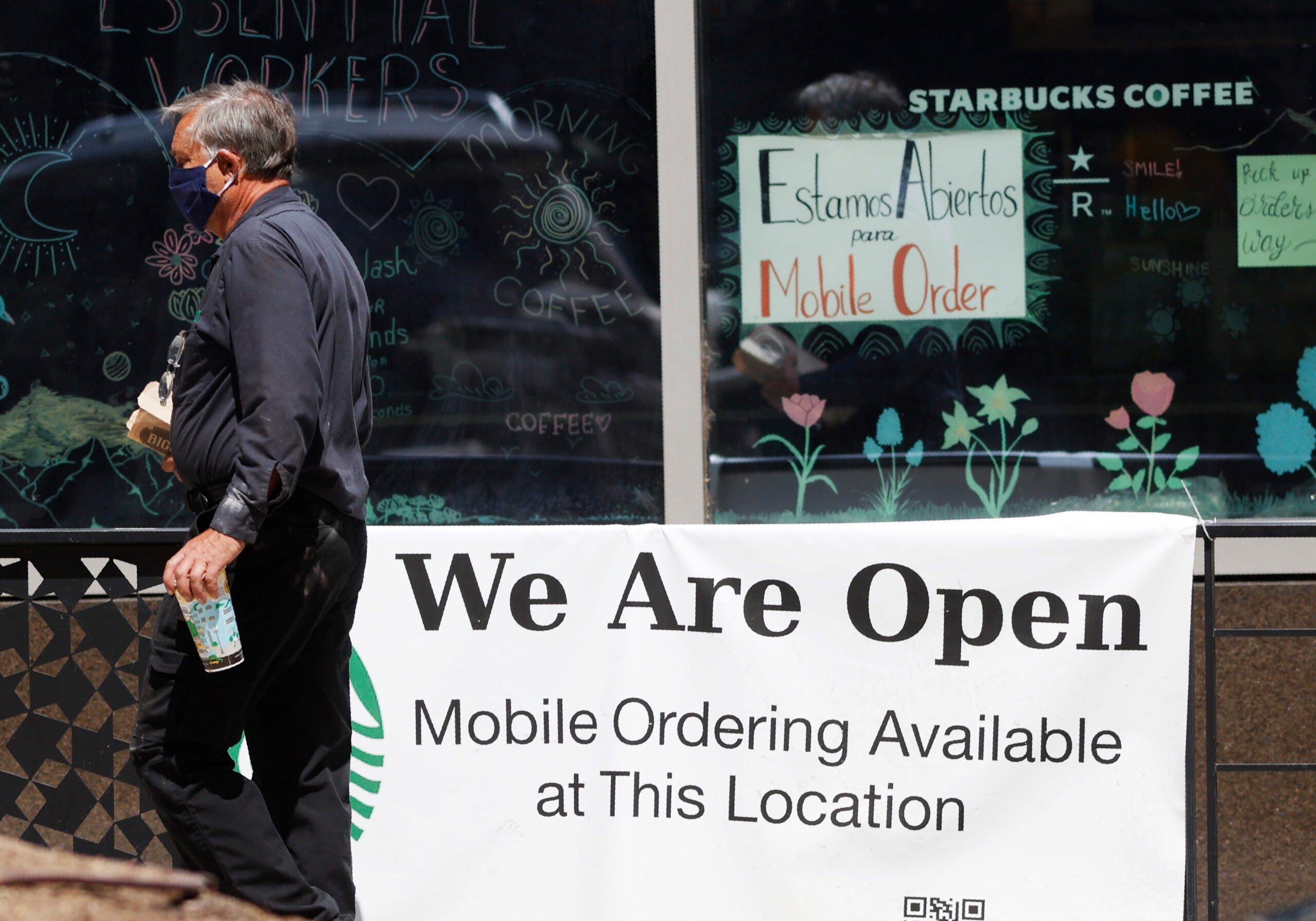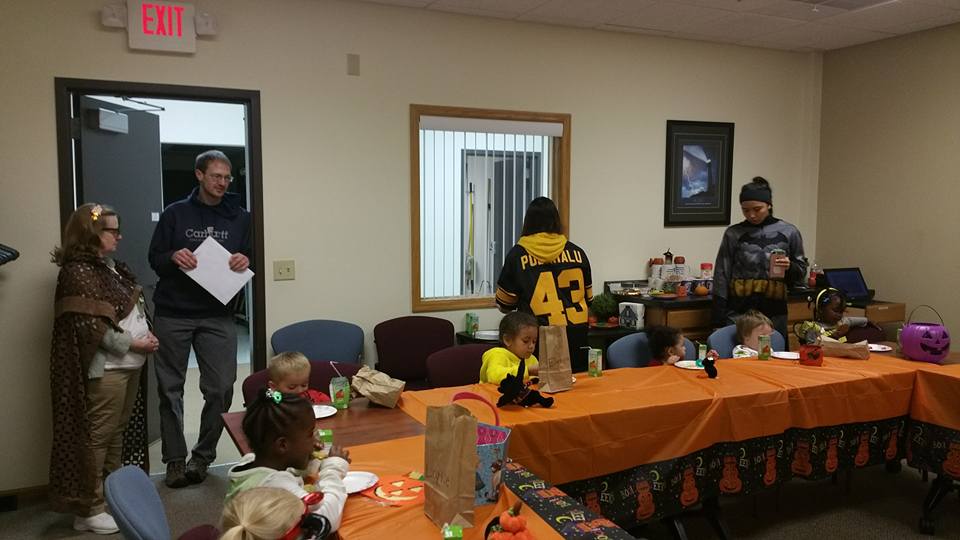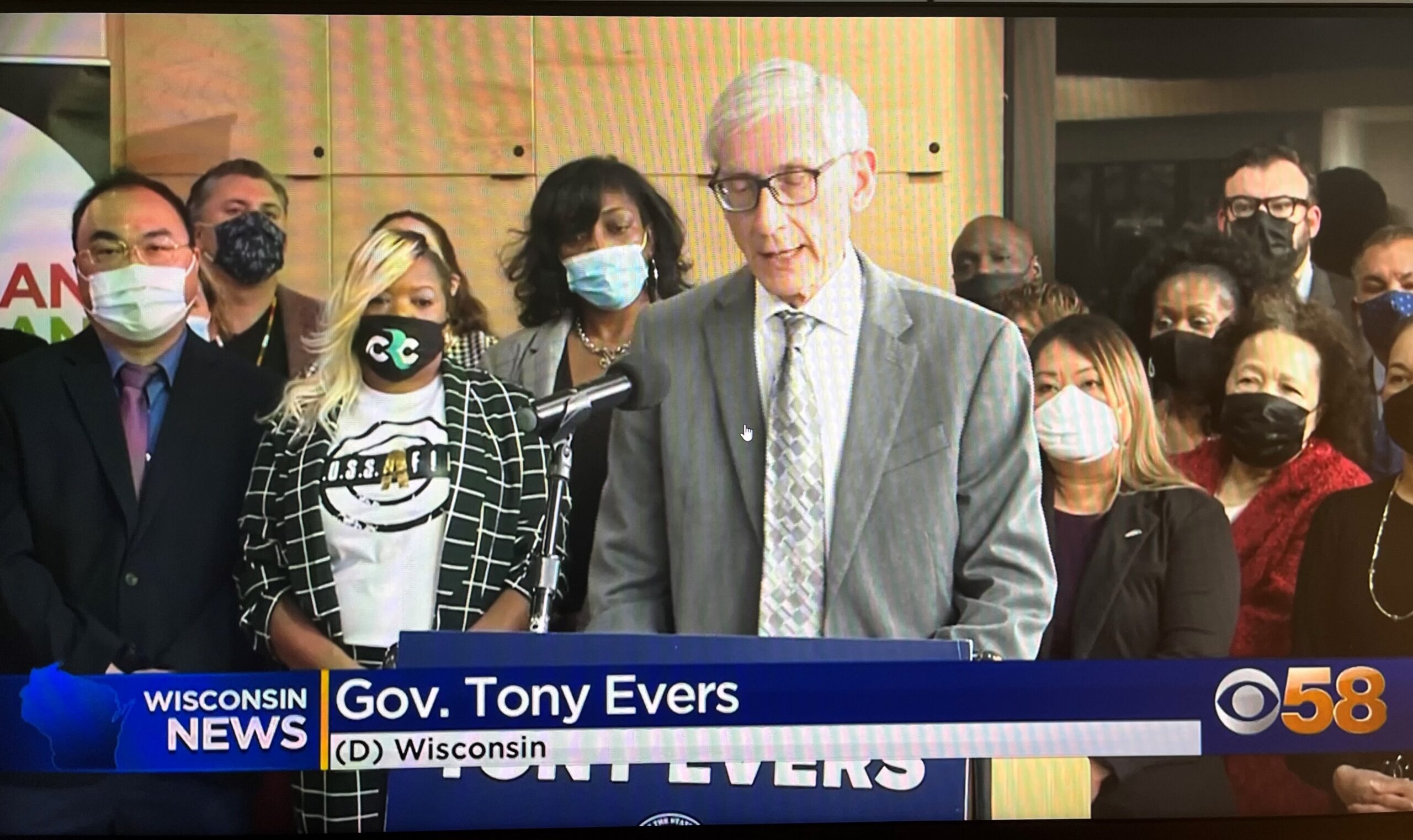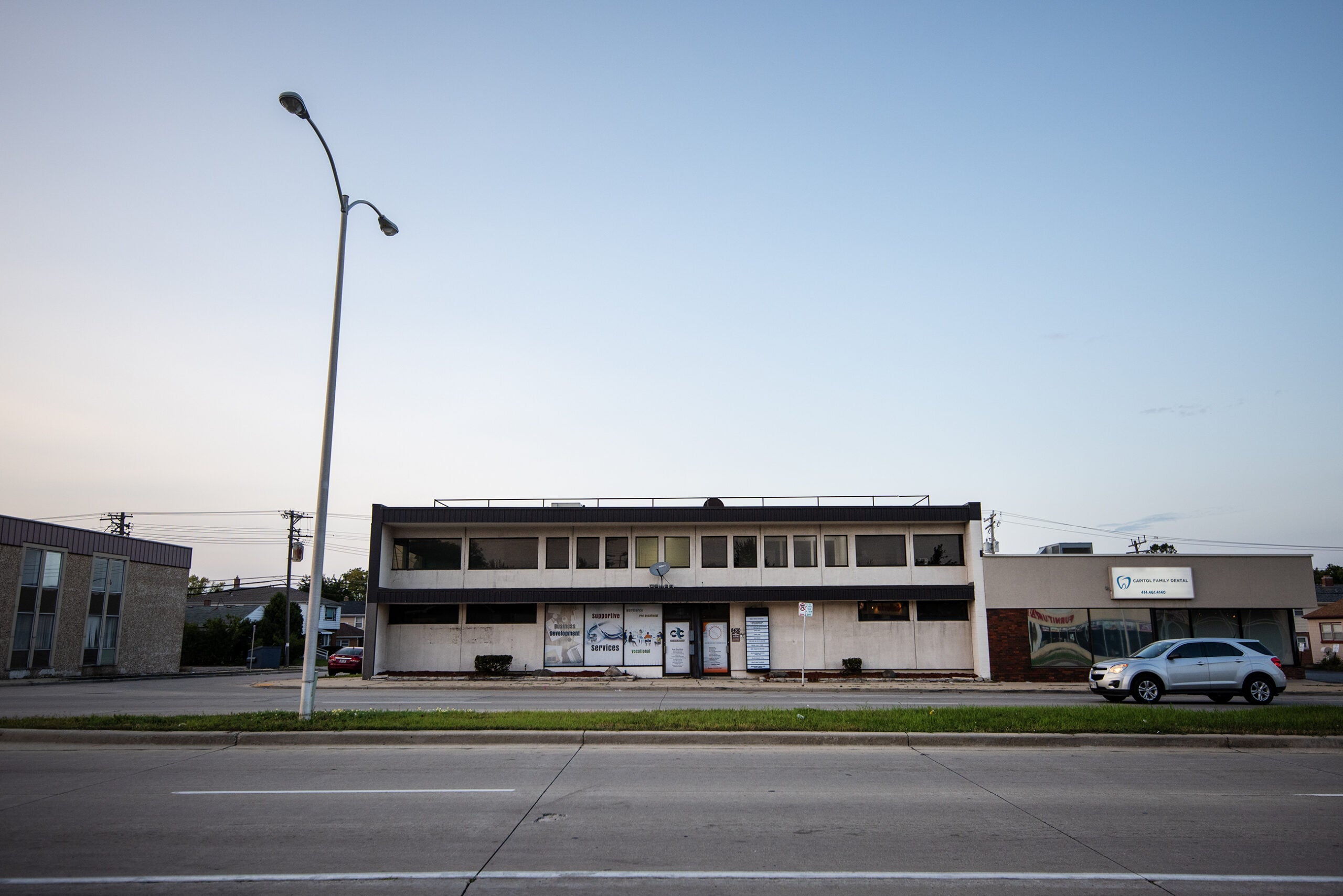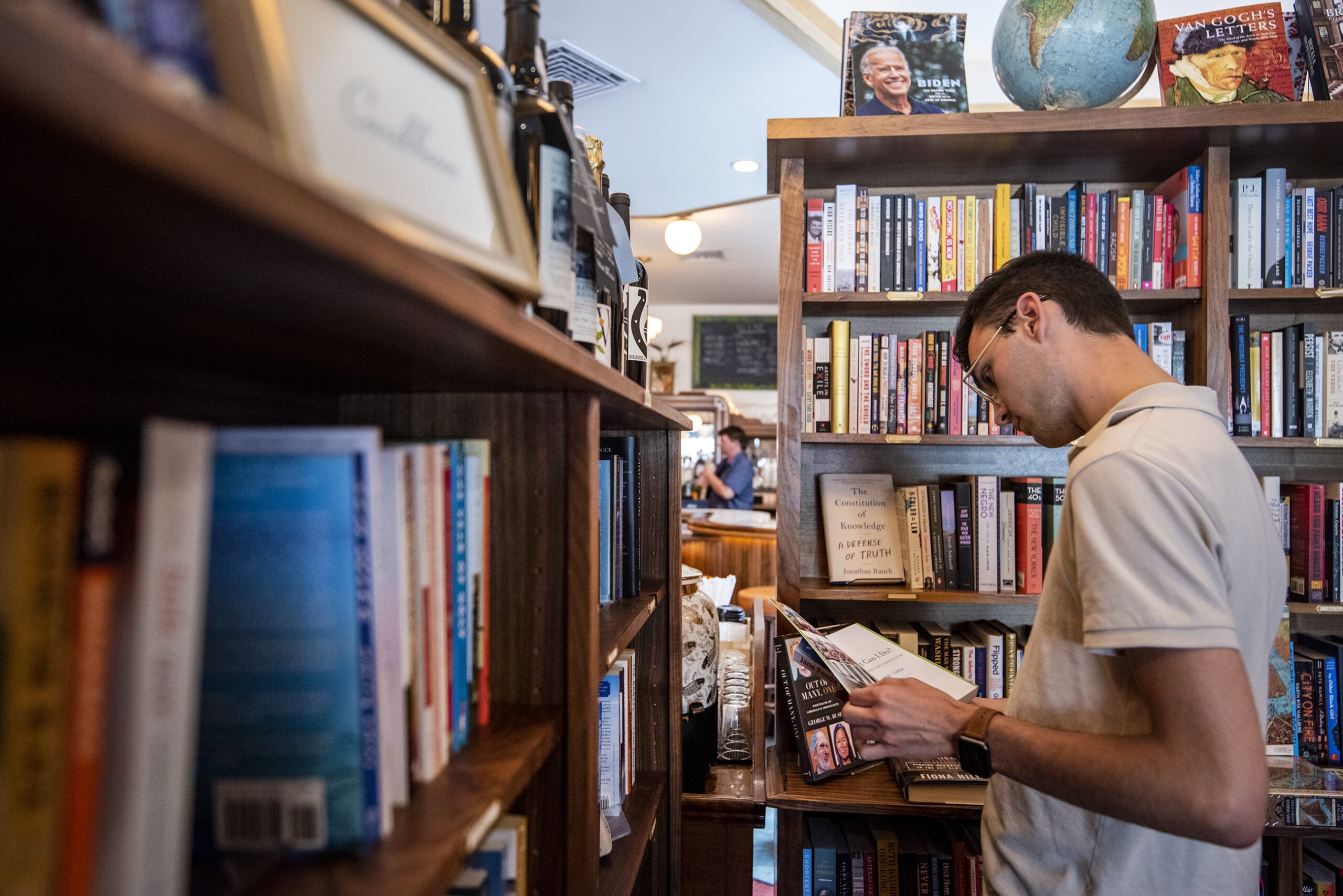A second round of state aid for small businesses is opening up to applications soon, but some small business owners say they won’t see much help from it.
The Evers administration announced the second round of “We’re All In” grants last Tuesday. Applications for the program open Monday and run through Nov. 2.
The program provides $5,000 grants to about 10,000 small businesses in Wisconsin. It’s targeting businesses that have been among the hardest hit during the outbreak, like restaurants, bars, hair and nail salons, and barber shops.
News with a little more humanity
WPR’s “Wisconsin Today” newsletter keeps you connected to the state you love without feeling overwhelmed. No paywall. No agenda. No corporate filter.
The new grants are double the size of the $2,500 grants offered in the first round of the program, which was announced in May. Approximately 27,000 small businesses across the state received funding under the initial round, according to Wisconsin Economic Development Corporation (WEDC) Secretary Missy Hughes.
Maria Ngyuen is the manager and co-owner of Lavender Natural Nails in Green Bay. Ngyuen said business has been slow, and the salon’s income has taken a hit.
“Normally, I would do 10 or 12 people a day, but now it’s like three,” she said, comparing a normal day’s business at a salon she worked at prior to the pandemic to business at her new salon that she opened in July.
She noted the salon prepared for business to be slower, but it’s still struggling to pay for things like staff wages, rent and utilities.
Ngyuen said funding from the state would go a long way toward helping her salon cover some of its expenses. But her business likely isn’t eligible to receive grant funding under the program because the “We’re All In” grants are reserved for businesses that were operating before January.
Omar Shaikh, co-owner of Milwaukee’s Carnevor Steakhouse, said he plans to apply for the grant money.
Shaikh said he appreciates the state making the funds available because “any little bit helps,” but for a restaurant like his, the money won’t go very far at all, estimating it’ll likely cover a month of the restaurant’s utility bills.
“It doesn’t even scratch the surface, just speaking frankly,” Shaikh said. “So, you know, the state or really … maybe more money allocated from the (federal government) — it needs to happen to really help restaurants.”
Hughes acknowledged the program won’t help all businesses struggling right now, adding the program is targeted at smaller “micro-businesses” that may not have existing relationships with banks or a safety net. Hughes said for businesses that are left out of “We’re All In,” the Evers administration continues to advocate for more federal funding.
The program is largely funded by money the state received from the federal coronavirus relief bill—the first round of stimulus spending in March.
Talks between Congress and the Trump administration over a second round of stimulus spending have been stalled for months, and it remains unclear if any additional aid could come to pass before the end of the year. Last week, President Donald Trump abruptly called off stimulus negotiations with congressional Democrats, and then reversed course proposing a stimulus package with more spending than House Democrats had offered.
With prospects for federal aid fading, Hughes said the state may have to step in with additional aid if Congress and the White House are unable to reach an agreement.
“We’ll be looking under the mattress, that’s for sure, if the federal government doesn’t come up with some kind of a stimulus plan,” Hughes said. She added that she’s confident an agreement will be reached on another round of stimulus spending.
But for other businesses, the grants will be a much-needed lifeline. Tim Eichinger, co-owner of Black Husky Brewing in Milwaukee, said that’s true for a business like his.
“To us it’ll be impactful,” Eichinger said, noting that he may end up using the grant to cover payroll. Eichinger said he appreciates the versatility of the state grant program, which doesn’t provide a lot of restrictions on the way the money is used compared to grants under the federal Paycheck Protection Program, a small business aid program which was funded by Congress from coronavirus stimulus spending and was administered by the U.S. Small Business Administration.
Priority will be given to businesses that haven’t already received aid under the first phase of the “We’re All In” program or the Ethnic Minority Emergency Grant program, to businesses in the hardest hit sectors, and to businesses with ethnically diverse ownership, according to a press release from WEDC.
Small business owners can find more information about the program through the state Department of Revenue website.
Wisconsin Public Radio, © Copyright 2025, Board of Regents of the University of Wisconsin System and Wisconsin Educational Communications Board.

